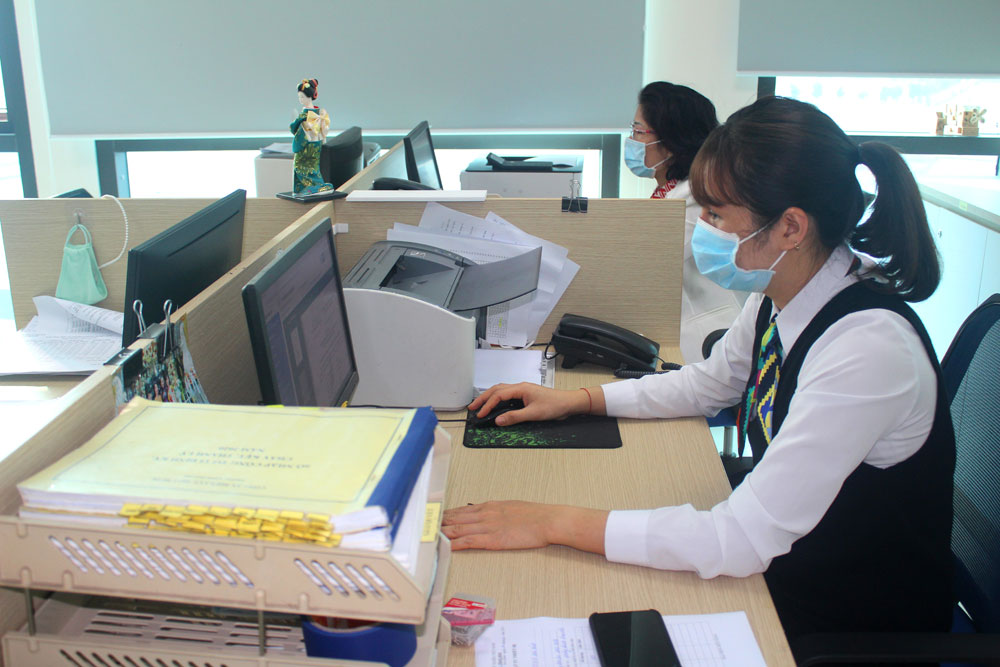



Paying power bills digitally brings practical benefits to customers, and contributes to preventing the COVID-19 pandemic.
Currently, Hoa Binh Power Company (PC Hoa Binh) is managing 258,000 customers, up 10,000 customers from the previous year. PC Hoa Binh has carried out a wide range of measures in an effort to provide better services for the customers. Earlier, the firm promote communication work to instruct its customers with cashless payment process. Accordingly, electricity bill payment can be made through automatic payment via bank account, smartbanking, internetbanking, UNT/UNC, e-wallet, National Public Service Portal, and many other channels.
Nguyen Thi Thanh, a resident in Thinh Lang ward, Hoa Binh city, has moved to pay for her family’s power bills via bank account in the past two years. She said her family does not experience power cut due to late payment for the bill anymore. Now, a smartphone connected to the Internet enables her to access power bill and pay for it via her bank account.
According to Tran Thi Ut, head of the business bureau at PC Hoa Binh, cashless payment for power bills benefit customers a lot since they do not have to wait for a long time for the payment and archive the bills. Furthermore, it is much convenient for the customers to look up for information and services via the customer service website.
She said 28 percent of the customers used the cashless payment method when it was launched in 2018, and the figure increased to 32 percent in 2019 and 42 percent in 2020. Hoa Binh city has the most customers using cashless payment, with over 80 percent, followed by Luong Son district with 38 percent. PC Hoa Binh targets to have 70 percent of its customers paying bills digitally.
In a bid to realise the set goal, PC Hoa Binh hopes to receive assistance from the customers as well as local authorities’ communication work, Ut said, adding in the context of complicated developments of COVID-19, cashless payment partly contributes to the pandemic prevention efforts./.